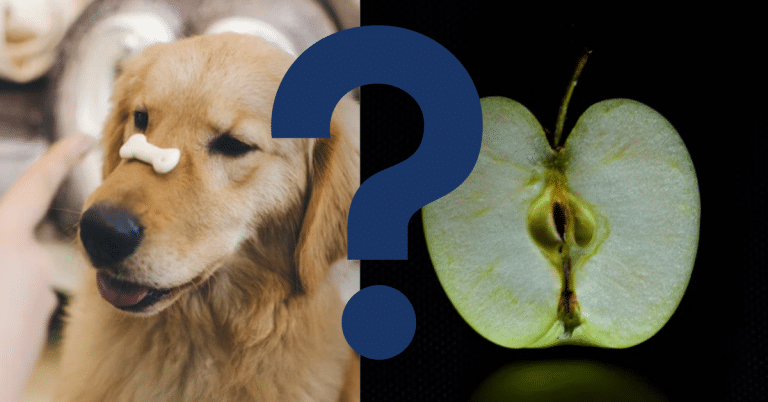Can Dogs Eat Pickles? A Vet’s Opinion

Vegetables such as asparagus, green beans, radishes, cabbage, carrots, onions, and cucumbers preserved in brine or vinegar are used to make pickles.
But can you feed pickles to your dog?
Dogs can consume pickles, but it’s not advisable to include them frequently. Pickles are packed with salt, vinegar, and other seasonings that can upset your dog’s gut and cause vomiting, diarrhea, and dehydration. Additionally, many pickles contain large doses of garlic or onion, which are toxic to canines. If you must feed your canine a pickle, make sure it is plain, unsalted, and devoid of harmful substances like garlic or onion. The best course of action is only to give your canine treats and foods that your veterinarian recommends.
Benefits Of Pickles For Dogs
Pickles are healthy for dogs to eat in moderation, but they don’t have any real health advantages. Pickles shouldn’t be a regular part of a dog’s food because of their high salt and spice content.
However, if you choose to treat your canine with a pickle occasionally, it might have a small positive impact on their health. Vitamin K, calcium, and potassium are just a few of the vitamins and minerals that can be found in pickles. These vitamins and minerals can strengthen your dog’s immune system, promote bone health, and improve muscle and nerve activity.
Some advantages of pickles for canines include the following:
May Enhance Digestion
The acetic acid in vinegar can support canines’ healthy digestion by raising stomach acidity, which can help break down food.
Anti-Inflammation
Some people think that vinegar’s anti-inflammatory properties may assist dogs with arthritis by reducing joint inflammation.
Prevent Bad Breath
Giving your dog a tiny piece of pickle may help them breathe easier because vinegar can help kill the bacteria in the mouth that cause a foul odor.
It’s important to note that there are much healthier and better ways to give your canine the essential nutrients. Instead of pickles, think about giving your pup fresh produce like carrots, green beans, or blueberries to eat. These are low in salt and other possibly harmful ingredients while still being able to provide essential vitamins and minerals.

How To Safely Give Pickles To Dogs
There are some crucial safety recommendations to follow if you choose to occasionally treat your canine with a pickle to reduce any possible risks:
Choose The Right Kind
Pickles that are plain and unsalted are the most secure choice for canines. Avoid pickles that have additional seasonings or spices and those that contain significant amounts of garlic or onion, both of which can be harmful to dogs.
Introduce It Gradually
To prevent digestive upset, you should introduce pickles progressively if your dog has never had them before. Give your dog a small piece of pickle to start, then observe how they respond before giving them more.
Keep An Eye Out For Indications Of Distress
Watch your canine for any indications of distress, such as vomiting, diarrhea, or excessive thirst. Stop giving your dog pickles, and contact your veterinarian if you notice these signs.
Limit Your Intake
Pickles contain a lot of salt, which is toxic to canines in large doses. Don’t make pickles a regular part of your dog’s diet; instead, offer them as an occasional treat in moderation.
Overall, it’s crucial to remember that pickles shouldn’t be fed to dogs regularly but should only be provided as a treat. It is always best to speak with a veterinarian if you have any concerns about giving pickles to your dog.
Will Pickles Make A Dog Sick?
If pickles are eaten in large quantities or contain specific ingredients harmful to dogs, they may make a dog sick. Pickles contain a lot of salt, which, if eaten in excess, can cause diarrhea and dehydration. Furthermore, many pickles contain seasonings or spices that can aggravate a dog’s stomach or even be poisonous in large quantities. Additionally, some pickles might include garlic or onion, which are highly toxic to canines. Your dog may exhibit symptoms like vomiting, diarrhea, and lethargy if they consume pickles that contain these components.
If you plan to give your dog pickles as an occasional treat, you must choose plain, unsalted pickles and only offer them in small amounts. It’s also essential to monitor your dog carefully for any signs of digestive upset or other symptoms of illness. Stop feeding your dog pickles, and call your vet if you observe any alarming symptoms.
Can dogs eat pickle variations?
Certain pickle variations are safe for dogs to consume, but paying attention to their ingredients is essential. Numerous pickle varieties include additional seasonings, spices, or other components that may be toxic to dogs, like garlic or onion.
Following are some instances of pickle variations and suggestions:
Sweet pickles: Sweet pickles could have added sugar, making dogs gain weight and causing other health issues. Additionally, they might include additional ingredients like cinnamon or nutmeg that can be harmful when consumed in large amounts.
Dill Pickles: Plain, unsalted pickles are usually okay for dogs to eat in moderation. But it would be best to avoid dill pickles that are overly spiced or have garlic or onion.
Vegetables that have been pickled: A variety of vegetables can be safely pickled and occasionally given to dogs as a treat. However, it’s crucial to avoid pickled veggies that contain garlic or onion and to be aware of any additional seasonings or spices that may be harmful when consumed in large amounts.
Overall, it’s critical to read labels and select dog-safe pickle varieties attentively. It’s best to speak with your veterinarian if you need clarification on whether a specific kind of pickle is safe for your dog.

Vet’s Summary
Due to their high salt content and the possibility of harmful ingredients like garlic or onion, pickles are not advised as everyday food for dogs. However, pickles can be occasionally given to dogs in small quantities as a treat because they contain vinegar, which may have some health advantages, like promoting better digestion or freshening breath. Pickles should not contain harmful ingredients, should only be given in small quantities to dogs, and should be observed for adverse reactions. In general, it’s best to seek a veterinarian’s advice before giving your canine any human food or treats and to limit their regular diet to a well-balanced, nutritionally complete dog food. Seek urgent veterinary care if a dog accidentally eats pickles or displays symptoms.
Live bacteria called probiotics can benefit a dog’s health by boosting its immune system and promoting better gut health. They may also lessen inflammation and enhance nutrient absorption, and they can assist in easing the signs of digestive problems like diarrhea or constipation. Probiotics have also been demonstrated to help lower the chance of specific infections and allergies in dogs.
Before giving your canine probiotics, it’s crucial to select a high-quality supplement that is specially formulated for dogs and to speak with a veterinarian. Overall, even though probiotics may benefit a dog’s health, it’s crucial to consider the advantages and disadvantages of using them and do so under a veterinarian’s advice.
Videos To Watch
If you are wondering if you can give pickles to your dog, watch this:
And if you want to know what a dog can NOT eat, watch this:






